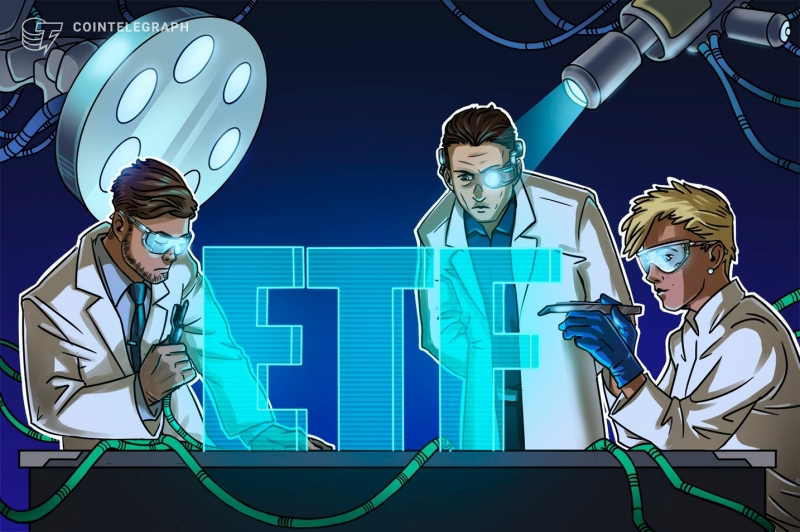Pando’s ETF bid comes as several spot Bitcoin ETF applications draw closer to a final decision deadline.
3911 Total views 17 Total shares Listen to article Swiss asset manager Pando Asset has become an unexpected late entrant into the spot Bitcoin (BTC) exchange-traded fund (ETF) race in the United States. On the same day, investment giant BlackRock met with the country’s securities regulator to pitch an updated ETF model based on the agency’s feedback. On Nov. 29, Pando submitted a Form S-1 to the Securities and Exchange Commission — used to register securities with the agency — for the Pando Asset Spot Bitcoin Trust. Like other ETF bids, the trust aims to track Bitcoin’s price with the custody arm of the crypto exchange Coinbase to hold Bitcoin on behalf of the trust. Pando is the 13th bidder aiming to have an approved spot Bitcoin ETF in the U.S. and joins the race with a dozen others that have been bidding for SEC approval, which include BlackRock, ARK Invest and Grayscale. In a Nov. 29 X (Twitter) post, Bloomberg ETF analyst Eric Balchunas said he has “more questions than answers” about Pando’s filing, questioning why it came so late.
more questions than answers: where have they been for last 3mo? why bother at this point? if they make Jan 10 crew what does that say about fair play and even society as we know it? And what exactly is a Pando?
— Eric Balchunas (@EricBalchunas) November 29, 2023
Balchunas also raised concern about the implications should Pando’s ETF be among the “crew” of Bitcoin ETF filings he predicts will be approved on Jan. 10.
“What does that say about fair play and even society as we know it?” he added.
Balchunas and fellow Bloomberg ETF analyst James Seyffart have put their money on Jan. 10 as the day all spot Bitcoin ETFs would be approved at once, as it’s the day the SEC must deny or approve ARK Invest’s bid.
However, Seyffart told his followers on X that he doubts Pando’s ETF “is ready to go on [the] first day with the others but crazier things have happened I guess.”
BlackRock meets with SEC to discuss ETF bid
Meanwhile, the SEC met with BlackRock and Invesco executives on Nov. 28 to discuss their ETF bids, according to agency documents.
BlackRock pitched a revision to its redemption model to address the SEC’s concerns from an earlier meeting on balance sheet impacts and risks to U.S. broker-dealers dealing with offshore crypto entities.
Balchunas explained the revision sees the offshore entity getting Bitcoin from Coinbase and pre-paying the U.S. registered broker-dealer in cash, which cannot directly handle Bitcoin.
Here's the original vs revised in-kind model, look like the new thing is STEP 4, which is the offshore entity market maker getting bitcoin from Coinbase and then pre-paying in cash to the US registered broker dealer (who is not allowed to touch bitcoin). pic.twitter.com/bDgYAnufWA
— Eric Balchunas (@EricBalchunas) November 29, 2023
Balchunas explained in a Nov. 17 X post that broker-dealers can’t deal in Bitcoin and the SEC was asking ETFs to have redemption models that “puts [the] onus on issuers to transact in Bitcoin and keeps broker-dealers from having to use unregistered subsidiaries or third party firms to deal [with] the BTC.”






